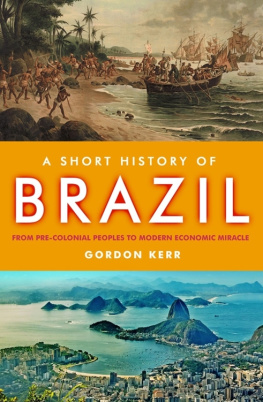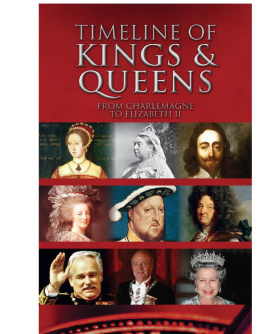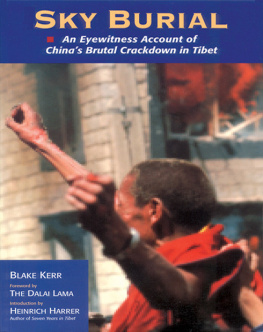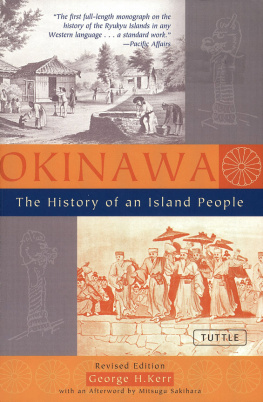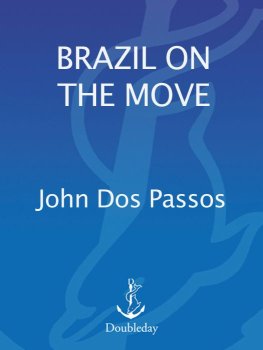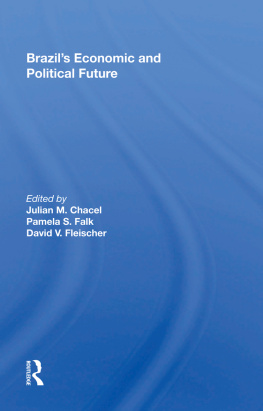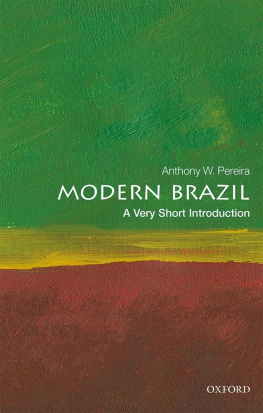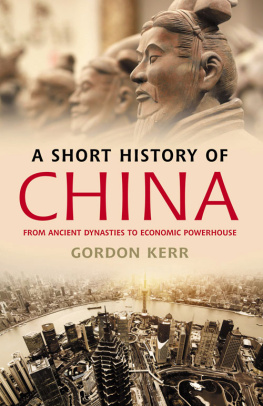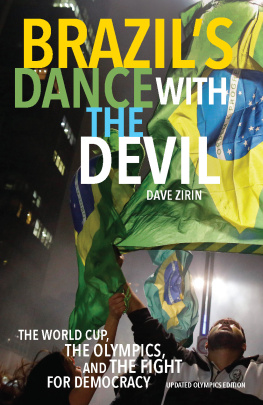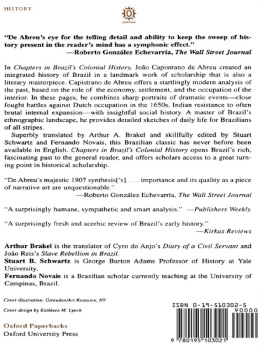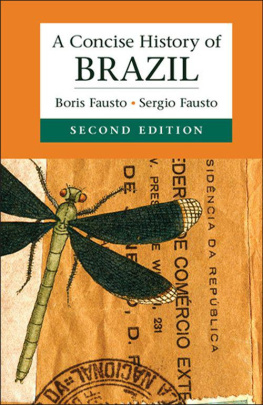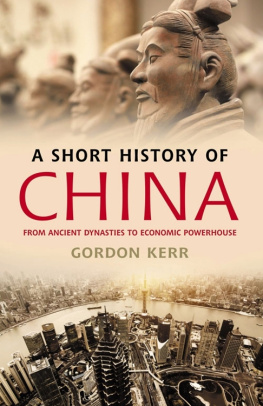
Gordon Kerr worked in bookselling and publishing before becoming a full-time writer. He is the author of many titles including A Short History of Europe and A Short History of Africa and A Short History of China (published by Pocket Essentials). He divides his time between Hampshire and South West France.
Acknowledgements
I would like to express my thanks to Ion Mills for commissioning a series of books that are a joy to research and write; Claire Watts for her hard work and undivided attention; and my editor Nick Rennison, for his encouragement and irritatingly single-minded devotion to detail, as well as for his many years of friendship. Also, thanks to Dr David Dent for the benefit of his Brazilian knowledge.
The recorded history of Brazil is brief when compared to most European countries, having been discovered by Portuguese sailor and explorer Pedro lvares Cabral just over five hundred years ago. Since then, however, its history has been turbulent, blighted by rebellion, cruelty, dictatorship and poverty. But, it is also a vibrant, exciting and ethnically diverse nation that has, in the face of great adversity, emerged as one of the world's fastest growing major economies.
A Short History of Brazil examines the events that have led to Brazil's ascendancy, looking at the indigenous peoples who populated the territory until its discovery in 1500 and chronicling the tempestuous years since, leading to the economic miracle of recent years. It covers the three centuries of Portuguese colonial rule when sugar became the main export, produced with the help of around three million slaves who were forced to make the deadly crossing of the Atlantic from Africa. It describes how Brazil declared independence from Portugal as a monarchy in 1822, the monarchy being replaced by a republic in 1889, and details the pattern of boom and bust in the Brazilian economy since then, covering the lives of some of the authoritarian rulers that seized power along the way. Finally, A Short History of Brazil looks at the many difficulties Brazil faces in the 21st century the devastating social problems resulting from its dramatic economic inequality and the often ruthless exploitation of the country's natural resources which is a topic of major concern for the entire world.
8
Military Government, Democracy and Economic Miracles
1964 to Present Day
Military Rule
Of course, as we have seen, this was not the first time that the military had intervened in Brazilian history. There had already been military interventions in 1930, 1945, 1954, 1955 and 1961. This time, however, although they had intervened to maintain social order and prevent Communism from becoming more influential, they were also conscious that there was a danger of civil war. It was thought that Goularts supporters were ready to resort to violence in the event of a right-wing coup. For this reason, the soldiers did not withdraw to their barracks after the coup, as had usually been the case. Instead, the military formed a junta made up of three generals, one each from the army, the navy and the air force. Their interim government was to be known as Comando Supremo Revolucionrio (Revolutionary Supreme Command). At its head was General Arturo da Costa e Silva (18991969) who had been removed from command of the 4th Army by Goulart after putting down left-wing student demonstrations in Brazils Northeast. The military takeover was welcomed by many elements of Brazilian society including the media, the Catholic Church, businessmen, politicians and a group of wealthy women who feared high prices for consumer goods and improved rights for their servants. As time went on, however, and the extent of the repression that was being imposed on the country became clear, many changed their minds. The United States was extremely supportive of the coup, however, and would continue to support the dictators who ruled Brazil until 1988 when democracy was restored.
The coup of 1964 brought the first of what were called national security regimes in which generals tried to change the nature of the state and society. Other South American countries would later copy the Brazilian example, Uruguay from 1973 to 1985, Chile from 1973 to 1990 and Argentina from 1976 to 1983. They all sought economic growth through stability and control, even though this meant that the individual human rights of anyone who opposed them were ignored. Repression was the order of the day. The generals took advantage of the disarray in which the opposition found itself and launched Operaco Limpeza (Operation Clean-up), arresting and imprisoning union activists, student leaders and left-wing politicians. On 11 April 1964, Humberto de Alencar Castelo Branco, an army marshal who had spent 300 days in combat zones as a member of the Brazilian Expeditionary Force during World War Two, was elected first president of the military regime. Castelo Branco was new to politics but enjoyed close ties with the American embassy. He used the motto development and national security for his government. Military officers remained in control of the executive, but civilian technocrats were also co-opted into government, men such as noted economist Roberto de Oliveira Campos (19172001) who accepted the post of Minister of Planning and Economic Coordination. Campos sought to stabilise the Brazilian economy with the objective of reducing inflation by 10 per cent within two years and achieving zero inflation thereafter. He was relatively successful, bringing it down from 100 per cent in 1964 to 28 per cent in 1967.
The junta ruled through a set of exceptional measures Institutional Acts that initially did little to change the way the country was governed. But they had begun a rewrite of the constitution and in 1967 it was ratified by a Congress from which any element of opposition had been erased. This constitution stipulated that the president would be elected by an electoral college, but only military leaders could be candidates. The president was given the right to govern by decree, regardless of whether the legislature was in session. There were sections of the constitution that guaranteed individual rights, but these were either conveniently ignored over the next few years or were amended by special decree as the regime became increasingly repressive. That year Brazil also changed its name from the Republic of the United States of Brazil to the Federative Republic of Brazil (Repblica Federativa do Brasil).
The world experienced a great deal of turmoil in 1968. The North Vietnamese launched the Tet Offensive against US forces fighting the Vietnam War, demonstrating that they were capable of victory. Student protest erupted across the world, calling for an end to American involvement in Vietnam, amongst other things. In Brazil, tens of thousands of students took to the streets in protest at the rule of the generals. They were joined by working class people in So Paulo and Rio de Janeiro, leading the military rulers to invent a Communist threat and come down hard on the demonstrators.
Institutional Act Number Two had already dissolved all existing political parties, replacing them with two new ones the opposition party, the Movimento Democrtico Brasileiro (Brazilian Democratic Movement) or MDB and the government party, the Aliana Renovadora Nacional (National Renewal Alliance Party), commonly known as ARENA. The first Institutional Act had introduced what was known as cassaco (cassation) by which political undesirables could be barred from holding political office and from voting in elections. Amongst its 400 or so victims were former presidents Goulart, Kubitschek and Quadros and prominent leftist politicians such as Lus Carlos Prestes. A new agency, the
Next page
